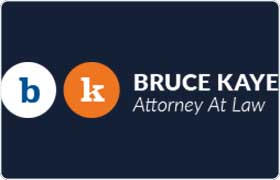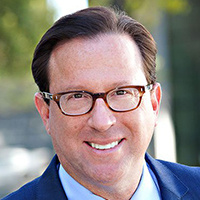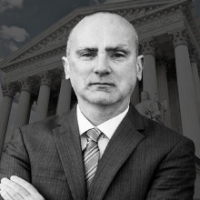 Haslet DUI-DWI Lawyers, Texas
Haslet DUI-DWI Lawyers, Texas
Sponsored Law Firm
-
 x
x

Click For More Info:
-
Law Offices Of Bruce C. Kaye
400 N. St. Paul St.1110 Dallas, TX 75201» view mapCriminal Defense Law Changing Lives, One Case At A Time
The best thing about running my own practice is the opportunity to give my clients the individual attention they deserve.
800-920-9461
Sponsored Lawyers
1-10 of 24 matches
Criminal, DUI-DWI, Misdemeanor, Felony, White Collar Crime
Christopher Lankford is licensed to practice law in all Texas state courts, Federal court (Northern District of Texas), and the Supreme Court of the United States. He focuses exclusively on criminal and DWI cases in Tarrant County, Texas. By practicing exclusively criminal defense in Tarrant County, he knows the ins and outs of the courts. He takes pride in fighting for individual's rights, freedom, and protecting them from the harsh consequences of the criminal justice system. Christopher has been named a Top 100 Trial Lawyer by the National Trial Lawyers Association for Texas (North) and Top Attorney by Fort Worth, Texas Magazine every year since 2014. He is rated "10.0" and "Superb" by Avvo attorney ratings, Avvo's highest rating. Christopher graduated from Baylor Law School with a concentration in criminal law. He is also a graduate of the Texas Criminal Trial College in Huntsville, TX, class of 2014. The Criminal Trial College is considered one of the most rigorous pieces of training a criminal defense lawyer can undergo. He is a member of the State Bar of Texas, Federal Bar Association, Tarrant County Criminal Defense Lawyers Association (TCCDLA), Texas Criminal Defense Lawyers Association (TCDLA), Tarrant County Bar Association (TCBA), Christian Trial Lawyers Association (CTLA), National College for DUI Defense (NCDD), and the College of the State Bar of Texas. Christopher is a United States Marine Corps veteran. Enlisting a month after September 11, 2001, he served primarily as a legal administration clerk. He also served in key roles such as a security specialist and a marksmanship instructor. He now spends much of his free time volunteering, attending sporting events, or participating in triathlons, endurance, and adventure races.
(more)Criminal, DUI-DWI, White Collar Crime, Domestic Violence & Neglect, Juvenile Law
As a Fort Worth defense attorney, Cody has worked privately defending hundreds of clients and was also appointed as an Assistant Federal Public Defender. His trial experience includes practically every kind of criminal charge: sex trafficking, drug conspiracy, murder, theft, DWI, and white-collar crimes. He has argued appeals in state and federal court, including the Texas Court of Criminal Appeals; Fort Worth Second Court of Appeals; and the Fifth Circuit Federal Court of Appeals. Cody regularly teaches evidence and trial advocacy to other attorneys. Meet with Cody to talk about your Tarrant County or Federal criminal case, and to ask about his 10 years as a criminal trial attorney.
(more)Criminal, Identity Theft, Personal Injury, White Collar Crime, DUI-DWI
John Robinson has been licensed to practice in Texas since 1991 and attained Board Certification in Criminal law from the Texas Board of Legal Specialization in 1998. His Board Certification is a mark of excellence and a distinguished accomplishment that only one in ten Texas attorneys attains. That Certification indicates that Mr. Robinson has substantial, relevant experience and has demonstrated the same in his representation of clients accused of committing crimes. Mr. Robinson is relentlessly committed to the protection of the constitutional rights of every client. For that, Mr. Robinson is respected throughout Dallas County and surrounding Counties. His experience in preparation, negotiation, and the trial of criminal cases is unparalleled. With over twenty five years of experience throughout the Dallas/Fort Worth area, Mr. Robinson has successfully defended hundreds of clients. His results include numerous dismissals and not guilty verdicts at trial.
(more)Criminal, DUI-DWI, Felony, Misdemeanor
With over 15 years of experience representing clients charged with DWI and other criminal charges in Tarrant County and throughout the Dallas-Fort Worth area, Craig A. Dameron has been recognized by his peers as a top criminal defense attorney. Contact the Fort Worth Criminal Defense Attorney online or call 817-222-0624 for a FREE consultation.
(more)DUI-DWI, Estate Planning, Family Law, , Criminal
After years of being entrenched in the criminal justice system, we understand that even the most innocent acts can lead to arrests. We are fully aware how quickly a minor argument or regular night out can spiral into physical charges and DWIs. No one ever intends for themselves to be charged with a crime - yet it happens all too often. No matter if this is your initial criminal charge or you have prior experience in the system, we are here to help. Our lawyers will be at your side on court dates and work behind the scenes to uncover any advantageous evidence that can prove useful in building your defense. We offer complimentary consultations as well as case evaluations with no cost and without pressure - simply reach out to us, and we'll assess every aspect of your situation! Whether accused of a minor offense such as marijuana possession or more serious felonies including sex crimes, our lawyers are here to strive for the most favorable resolution. When it comes to violent crimes, state prosecutors take them very seriously and often fail to consider that there are always two sides to every story; you may have been defending yourself or in an altercation with another person. Therefore, we begin each case by thoroughly researching all facts in order to build a strong defense strategy tailored specifically to your needs! To schedule your free consultation with the Weatherford Criminal Defense Attorney, visit us online or call 817-599-7005.
(more)Criminal, DUI-DWI, Expungement, White Collar Crime, Juvenile Law
Attorney Timothy D. Godwin, the founding attorney of Godwin Law Firm, PLLC, brings a robust focus in criminal defense. With a Juris Doctor degree from Texas A&M, Timothy leverages his academic background and a sharp legal acumen to serve clients effectively. His practice areas address a wide range of legal scenarios, ensuring that each client receives thorough and attentive guidance. Primarily centered on criminal defense, Attorney Godwin works on matters including felonies, traffic tickets, expunctions and more. As a dedicated legal professional, Timothy is committed to understanding and addressing the unique needs of each case, providing tailored advice and robust defense strategies. To schedule your free consultation with the Decatur Criminal Defense Attorney, please fill out a form online or call us at 940-255-0000.
(more)



 Bruce Kaye Dallas, TX
Bruce Kaye Dallas, TX






